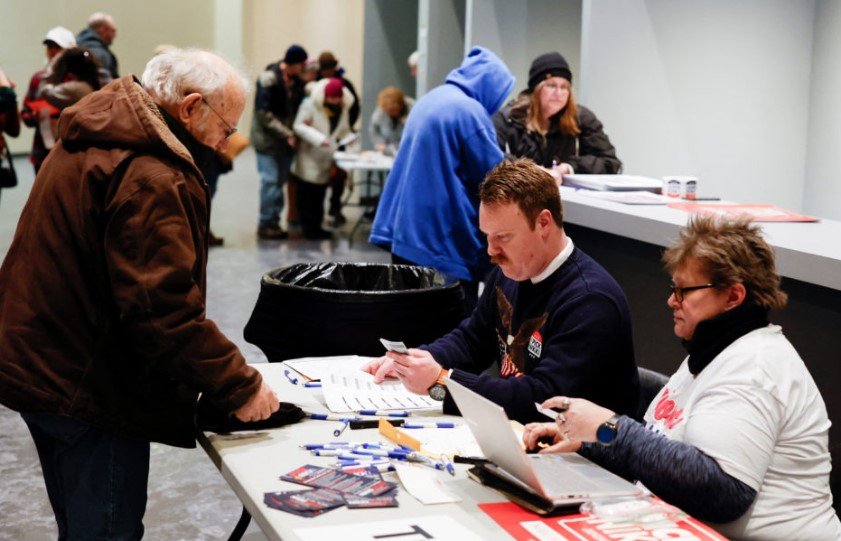A new legislative proposal in Iowa is stirring debate over voter access and election integrity. The bill, if passed, would require voters to register with a political party at least 30 days before participating in caucuses or primaries, limiting last-minute party switches. Critics say it could discourage participation and create new challenges for election workers.
Proposed Law Targets Party-Switching Concerns
House File 353, introduced in the Iowa House, seeks to prevent last-minute political party changes before caucuses and primary elections. Under the proposal, voters must be registered with their chosen party a full month ahead of participating in that party’s nomination process.
The bill also includes a restriction on candidacy requirements. Any individual wishing to run as a partisan candidate must have been a member of that party for at least one year before filing nomination papers. First-time voters, however, would not be subject to these rules if they had never previously registered with a political party.
Republican Rep. Derek Wulf, who introduced the measure, cited concerns from constituents about potential party-switching during the 2024 Republican caucuses. Some feared that voters from opposing parties were strategically changing their registration to influence the nomination process.

Debate Over Voter Access and Political Freedom
Supporters of the bill argue that it will enhance the integrity of Iowa’s caucus system and maintain the state’s historical position as the first-in-the-nation caucus for Republicans. They say party loyalty should be a prerequisite for influencing a party’s nomination process.
Opponents, however, see it differently. Amy Campbell, a representative from the League of Women Voters of Iowa, expressed concerns that the bill would create unnecessary barriers for voters who prioritize issues over party affiliation.
“We should be evaluating candidates based on their qualifications and ideas, not arbitrary party registration rules,” Campbell said. “This bill places an unfair burden on independent-minded voters.”
A growing number of voters nationwide have been shifting party affiliations in response to specific candidates and policies. Some see the measure as an attempt to control political participation rather than protect election integrity.
Election Workers Fear Potential Backlash
Beyond restricting voter participation, some warn that the bill could put added strain on election workers. Rosie Thierer, a longtime poll worker from Mitchellville, voiced concerns about the enforcement of the law and the potential for backlash against poll workers.
“If you think about the place where you vote, you face a lot of workers like me—gray-haired, wrinkled old women,” Thierer said. “So think about exposing those individuals to the harassment they will take. It will be verbal, it could be physical.”
Election officials across the country have reported an increase in voter frustration and hostility in recent years. Some fear that adding new restrictions could escalate tensions at polling places, making it harder to recruit and retain workers.
What This Means for Iowa’s Caucus Tradition
Iowa’s status as the first-in-the-nation Republican caucus state has been a key part of its political identity. However, the Democratic National Committee stripped Iowa of its early state status in the 2024 presidential election cycle, raising questions about the future of the caucus system.
Some see the proposed law as a defensive move to solidify the state’s role in the nomination process. Others view it as an unnecessary tightening of voter rules that could reduce participation, particularly among younger and unaffiliated voters.
The bill is still in its early stages, and lawmakers are expected to continue debating its impact. As the discussion unfolds, both supporters and critics will be watching closely to see whether Iowa prioritizes party loyalty over voter flexibility.

Comments